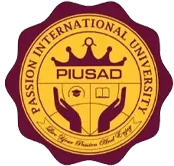Comprehensive Evaluation Methods
At PIU University, we are committed to ensuring that our evaluation methods accurately reflect student learning and growth. Our approach to assessment is designed to be fair, transparent, and supportive, providing students with multiple opportunities to demonstrate their understanding and mastery of the material.

Diverse Assessment Strategies
We employ a variety of assessment strategies that cater to different learning styles and objectives. These methods not only measure knowledge but also assess critical thinking, creativity, and practical skills. Our evaluation methods include:
· Examinations: Standardized tests and quizzes are utilized to assess comprehension and retention of key concepts and principles. These assessments are designed to evaluate students’ ability to apply what they have learned in a structured manner.
· Projects and Presentations: Students engage in hands-on projects and presentations that allow them to apply their knowledge to real-world scenarios. These assessments encourage creativity, collaboration, and problem-solving, enabling students to showcase their skills in practical contexts.
· Essays and Research Papers: Written assignments, such as essays and research papers, are used to evaluate students’ analytical and writing skills. These assessments encourage in-depth exploration of topics and help develop critical thinking and argumentation abilities.
· Peer Reviews: Collaborative assessments through peer reviews foster a sense of community and teamwork. Students provide constructive feedback to each other, promoting a culture of continuous improvement and self-reflection.
· Portfolios: Students are encouraged to create portfolios that showcase their work over the course of their studies. This holistic approach allows them to demonstrate their learning journey, skills, and accomplishments.
Continuous Feedback and Support
At PIU University, we believe that assessment is an ongoing process. Instructors provide continuous feedback to help students understand their strengths and areas for improvement. This feedback is designed to guide students in their learning and encourage them to take an active role in their educational journey.
Formative and Summative Assessments
Our evaluation methods are categorized into formative and summative assessments:
· Formative Assessments: These are conducted throughout the learning process to monitor student progress and provide feedback. Formative assessments include quizzes, draft submissions, and class participation, helping students identify areas where they can improve.
· Summative Assessments: These assessments occur at the end of a learning period, evaluating overall student performance and understanding of the material. Summative assessments include final exams, major projects, and capstone experiences that demonstrate mastery of course objectives.
Emphasis on Fairness and Transparency
We are dedicated to maintaining a fair and transparent evaluation process. Clear grading criteria and rubrics are provided for all assessments, ensuring that students understand how their work will be evaluated. This transparency fosters trust and encourages students to take ownership of their learning.
Support for Academic Success
To further support student success, we offer resources such as tutoring, academic advising, and workshops on effective study techniques and time management. Our goal is to empower students to excel in their assessments and achieve their academic objectives.



